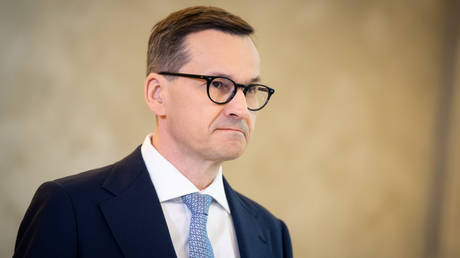
Warsaw has been accused of creating a “hostage situation” by leveraging Kiev aid for tax deal
The Polish government gave in to EU pressure on Thursday and dropped its opposition to a package of policies that involves millions of euros in aid to Ukraine, Politico reported, citing diplomatic sources in Brussels. Warsaw is still feuding with six Western European countries over sanctions impacting Russian fertilizer exports to Africa, however.
At issue was a package deal that involved €18 billion ($19 billion) in aid to Kiev, freezing €6.3 billion in EU funding to Budapest until Hungary completes “reforms” demanded by Brussels, and agreeing to the US-championed minimum corporate tax rate. Having previously agreed to the package, Poland on Wednesday tried to get the tax plan considered separately, according to the outlet.
“There’s a lot of frustration with Poland jeopardizing Ukraine aid by blocking the minimum tax,” an unnamed EU diplomat told Politico on Wednesday, describing the move as “another hostage-taking situation.”
“It’s like an abusive relationship: They keep promising it will be different next time, but deep down we know we will get hurt over and over again,” said another EU diplomat.
By Thursday afternoon, however, Polish PM Mateusz Morawiecki dropped his objections. He has also capitulated to Brussels on the “rule of law” issue at home, signaling on Wednesday that Poland will change the disciplinary rules for judges in order to comply with EU directives and unblock millions in funding.
The European Commission has held up €35 billion in pandemic recovery grants and loans until Poland submits. Morawiecki’s Law and Justice Party (PIS) has proposed a bill that would move the disciplinary matters to another top court, which the EU regards as more independent of the government. His coalition partners may not support it, and the opposition is in no rush to throw Morawiecki a lifeline, however. Nor is it a given that the bill would be enough to mollify Brussels.
Warsaw continues to be obstinate on the matter of sanctions against Russia, however. With the backing of the three Baltic states, Poland wants to maintain the existing embargo on Russian shipping – while Belgium, France, Germany, the Netherlands, Portugal and Spain have proposed easing the restrictions on fertilizer exports, arguing it increases the danger of famine in Africa.




